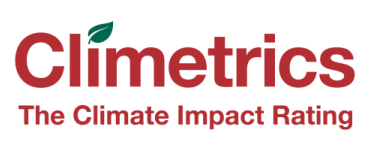- New Climetrics methodology scores funds for investing in companies with emissions reduction targets based on climate science.
- Over 100 of world’s biggest companies, like L’Oréal and McDonald’s already have approved science-based targets, with hundreds more publicly committed.
June 6, 2018: The climate rating for actively managed and exchange-traded funds, Climetrics, has advanced its methodology by scoring funds for investing in companies with public commitments to science-based targets.
 Climetrics’ 1-5 leaf ratings give investors wide-ranging transparency on the climate impact of equity funds and a simple view of a fund’s exposure to climate risks. Top-rated equity funds can be found for free on climetrics-rating.org.
Climetrics’ 1-5 leaf ratings give investors wide-ranging transparency on the climate impact of equity funds and a simple view of a fund’s exposure to climate risks. Top-rated equity funds can be found for free on climetrics-rating.org.
The rating is based on three parts: a fund’s portfolio holdings, its investment policy, and asset manager governance.
The climate performance of a fund’s portfolio is a key part of its overall Climetrics rating. Investee companies are scored on their current carbon emissions, exposure to fossil fuels and use of clean technology, and their future strategies for managing long-term climate and deforestation risks.
Analysis of 50 of the best-rated equity funds under Climetrics’ new methodology found that two-thirds have above-average investment in companies with science-based targets.1
Setting a science-based target means that a company’s emissions reduction targets are aligned with climate science, i.e. what is required to prevent dangerous global warming and keep global temperature increases below 2°C compared to preindustrial temperatures.2 It is a leading signal to investors that a company is actively managing the long-term risks and opportunities of climate change.
Climetrics, which is backed by global environmental non-profit CDP, and ISS-Ethix Climate Solutions, now calculates scores for funds investing in companies with either approved science-based emission reduction targets or those committed to doing so.
The number of funds rated by Climetrics has also grown to approximately 3700, covering 50% of all assets invested in mutual funds in Europe representing close to €3 trillion AuM. Around 9% of funds have a 5-leaf rating.
Maximilian Horster, Head of ISS-Ethix Climate Solutions, said:
“The methodology behind Climetrics is the most complex and advanced of its kind and it is constantly evolving. With this new methodology update, investors can identify funds that are likely to be well-positioned in the transition to a low-carbon economy.”
Nico Fettes, Head of Climetrics at CDP, said:
“This is a breakthrough for the momentum of science-based target-setting and a big step for fund investors to have more clarity and confidence in the long-term impact of their investments. Investors now have the tool to choose from a wide range of funds, with different investment approaches, which are better-aligned with the low-carbon transition and present lower long-term risks to their returns.”
The major update to the rating comes as the financial system in Europe undergoes a major sustainability shift led by the European Commission’s new Action Plan for Sustainable Finance. The EU has said that €180 billion in additional sustainable investments are needed to achieve its emissions targets.
In total, more than 370 companies have now joined the SBTi (Science Based Targets Initiative), at a rate of more than two companies per week since its launch in mid-2015 in the run-up to the Paris Climate Change Conference. Europe has more than half of all companies, globally, with approved SBTs.
Momentum behind science-based target setting is expected to grow further in 2018. According data from CDP, which powers Climetrics, 1,200 companies have signalled their intention to set science-based targets by 2019.
—————————————
150 funds with a 5-leaf Climetrics rating from a peer group of 512 funds invested in global equity were analysed. 65% have an allocation to companies with science-based targets higher than the global MSCI World benchmark. Fund data derived from yourSRI.com was used to conduct the analysis.
2Targets adopted by companies to reduce greenhouse gas (GHG) emissions are considered “science-based” if they are in line with the level of decarbonization required to keep global temperature increase below 2 degrees Celsius compared to pre- industrial temperatures, as described in the Fifth Assessment Report of the Intergovernmental Panel on Climate Change (IPCC AR5).






